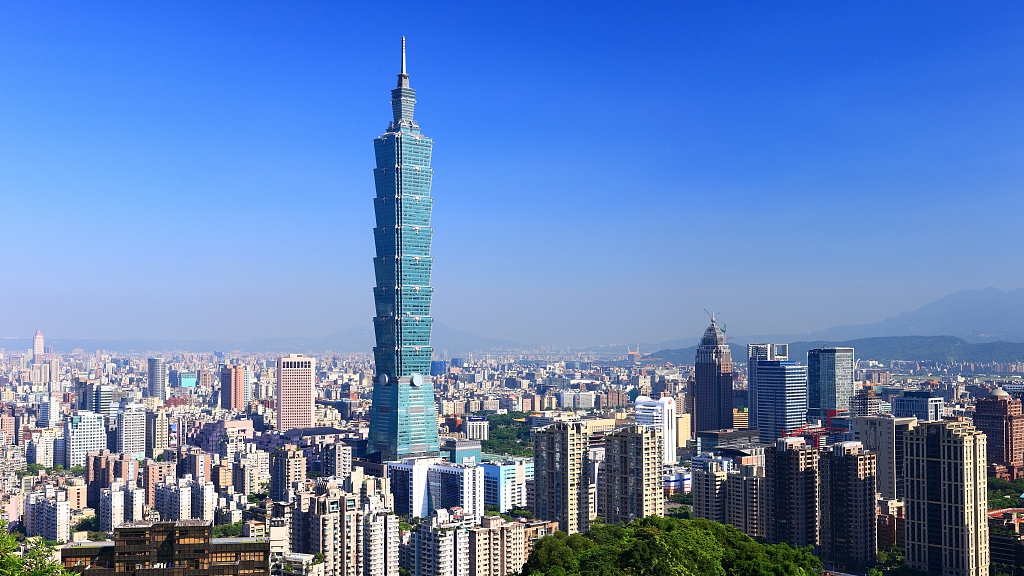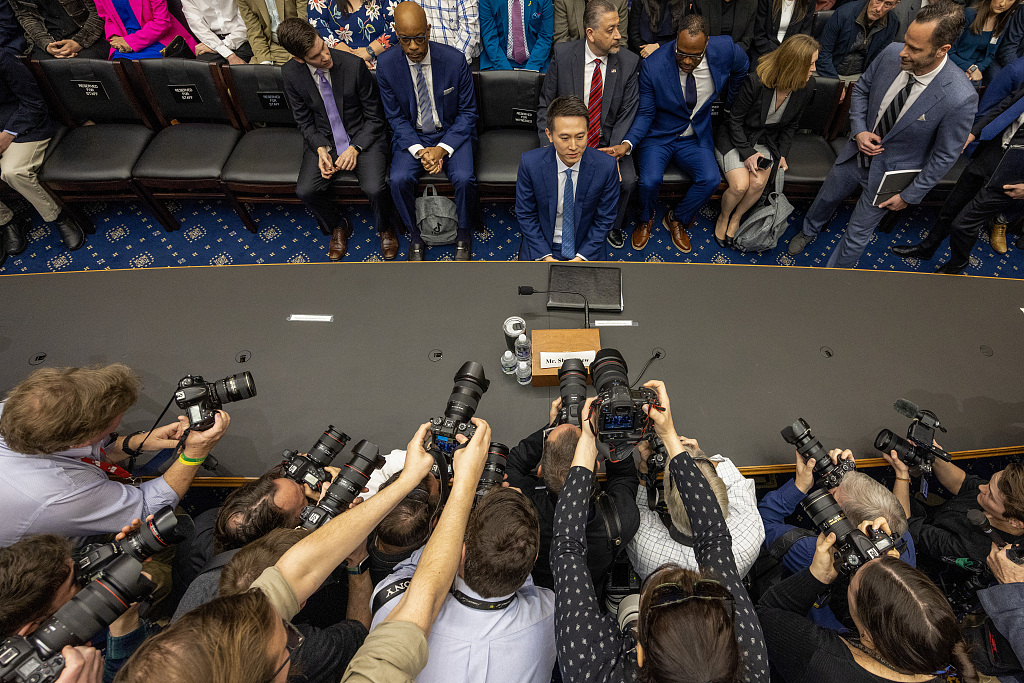
The Taipei 101 skyscraper in Taipei, Taiwan, Southeast China. /CFP
The Taipei 101 skyscraper in Taipei, Taiwan, Southeast China. /CFP
Editor's note: Imran Khalid is a freelance columnist on international affairs. The article reflects the author's opinions and not necessarily the views of CGTN.
The ongoing collaboration between Taiwan leader Tsai Ing-wen and certain U.S. politicians to engage in political maneuvering poses significant political risks, especially considering the current unstable state of Sino-U.S. relations and the heightened tensions in the Taiwan Strait. It poses a severe challenge to the one-China principle inscribed in the three Sino-U.S. communiques and the United Nations General Assembly Resolution 2758.
Similar to previous trips made by Taiwan leaders to Central American nations, Tsai's current itinerary is not actually directed to "enhance partnership and shared prosperity" with these countries, but rather towards her "transit" through the United States and her political interactions with the American leadership.
Beijing has cautioned against U.S. officials' meeting with Tsai and has been closely observing her "transit" through the country, citing the possibility of political instability and exacerbation of Sino-U.S. relations and aggravation of tensions across the Taiwan Strait.
Although White House National Security Council spokesperson John Kirby tried to downplay Tsai's visit, reports are circulating in the American media about a "busy schedule of Tsai" which includes some speeches as well as high-profile meetings with the key officials including House Speaker Kevin McCarthy.
Ever since the start of this year, Washington has been trying to instigate Beijing on the pretext of different issues one after another. First it was the "spy balloon" saga, where the American media and government hyped up a Chinese civilian unmanned airship and tried to brand China as a villain that was engaged in discreet surveillance activities against other countries.
The balloon episode was used to cancel the scheduled visit of U.S. Secretary of State Antony Blinken at the very last minute. The postponement of the Blinken visit, which could have been used to promote positivity between the two countries after the balloon issue, added more bitterness in the Sino-U.S. relations.
Then the U.S. suddenly started a new concocted campaign against an alleged supply of Chinese weapons to Russia. Things did not stop there and last month TikTok was subjected to an excessive media trial in the United States with an intention to indirectly smear China.

TikTok CEO Shou Zi Chew prepares to testify before the House Energy and Commerce Committee in the Rayburn House Office Building in Washington, D.C., U.S., March 23, 2023. /CFP
TikTok CEO Shou Zi Chew prepares to testify before the House Energy and Commerce Committee in the Rayburn House Office Building in Washington, D.C., U.S., March 23, 2023. /CFP
And now the Tsai's "transit" is being used to escalate the tensions in Sino-U.S. relations. This is another inflammatory step taken by the Joe Biden administration to fuel the cross-strait frictions. In August last year, the Biden administration took a very provocative step when, despite serious reservations by the Chinese government, it allowed a delegation led by then House Speaker Nancy Pelosi to make a visit to China's Taiwan region, where they met with Tsai and other senior officials.
The Pelosi trip was planned by the China hawks in the Democratic Party to win votes in the November mid-term polls there. Incidentally, the Tsai visit is also aimed at winning the support of voters – but this time the target is Taiwan's pro-independence voters who oppose unification with the Chinese mainland.
In order to divert attention from the infighting within the Democratic Progressive Party and help the DPP's new candidate Lai Ching-te succeed in the upcoming election, Tsai has planned this "transit" through the U.S. to win some breakthroughs for her party. She will use her political junket in the U.S. to augment her legacy as the island's political leader and safeguard against a possible political rout by the Kuomintang in the coming election.
If the meeting between Tsai and McCarthy does take place, it would trigger severe reaction from China and aggravate the friction between Beijing and Washington. It is high time that the Biden administration should display rationality on this matter. Because of such provocative tactics, the island is already fast becoming isolated in the global arena, while many other countries are in the queue to follow the footsteps of Honduras. The efforts to embolden the independence forces will yield nothing, but more tension and friction.
(If you want to contribute and have specific expertise, please contact us at opinions@cgtn.com. Follow @thouse_opinions on Twitter to discover the latest commentaries in the CGTN Opinion Section.)